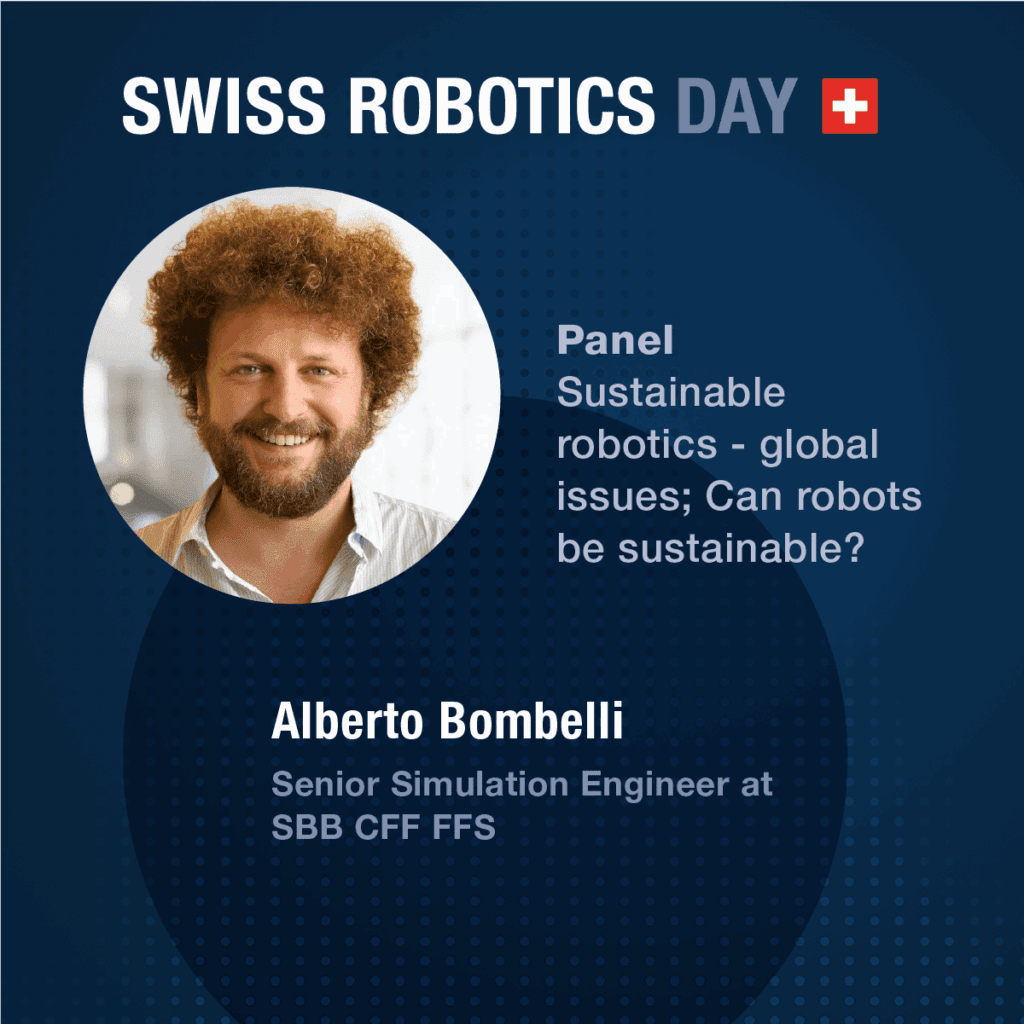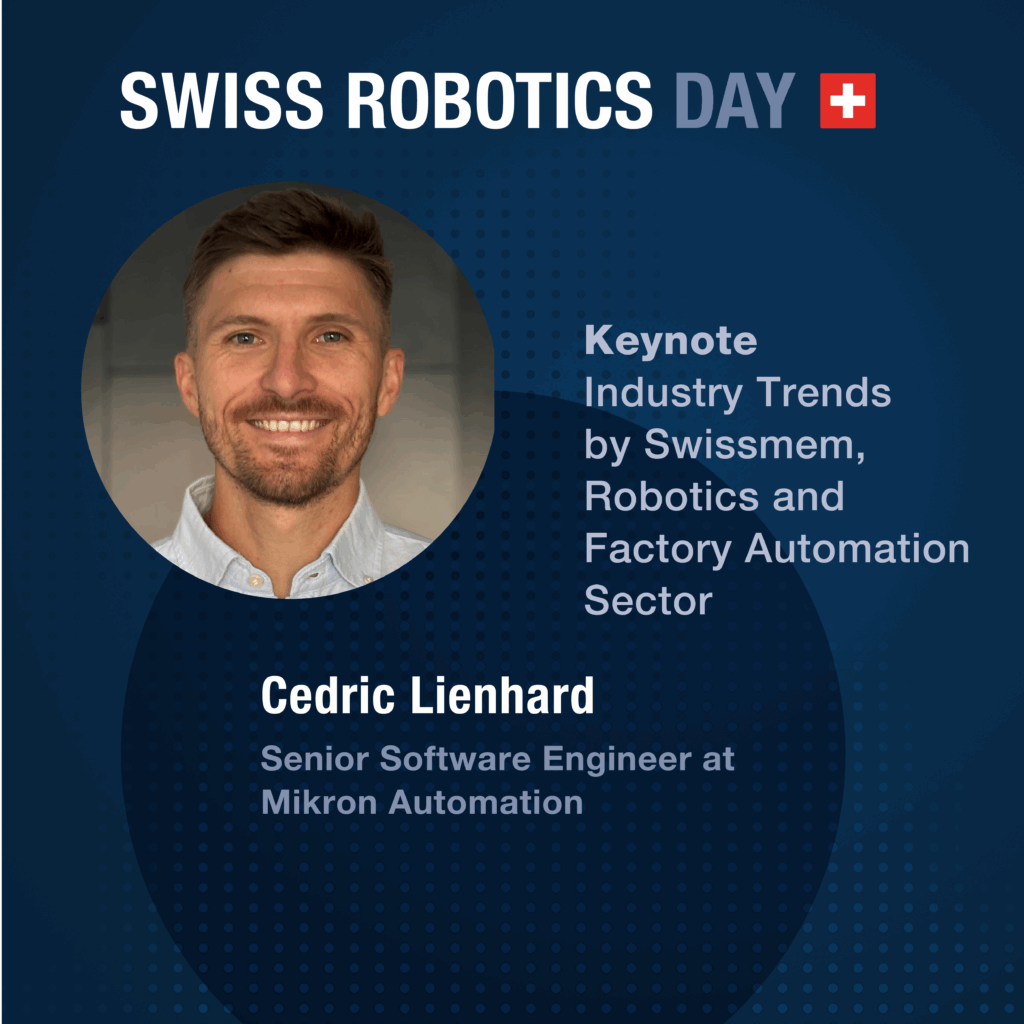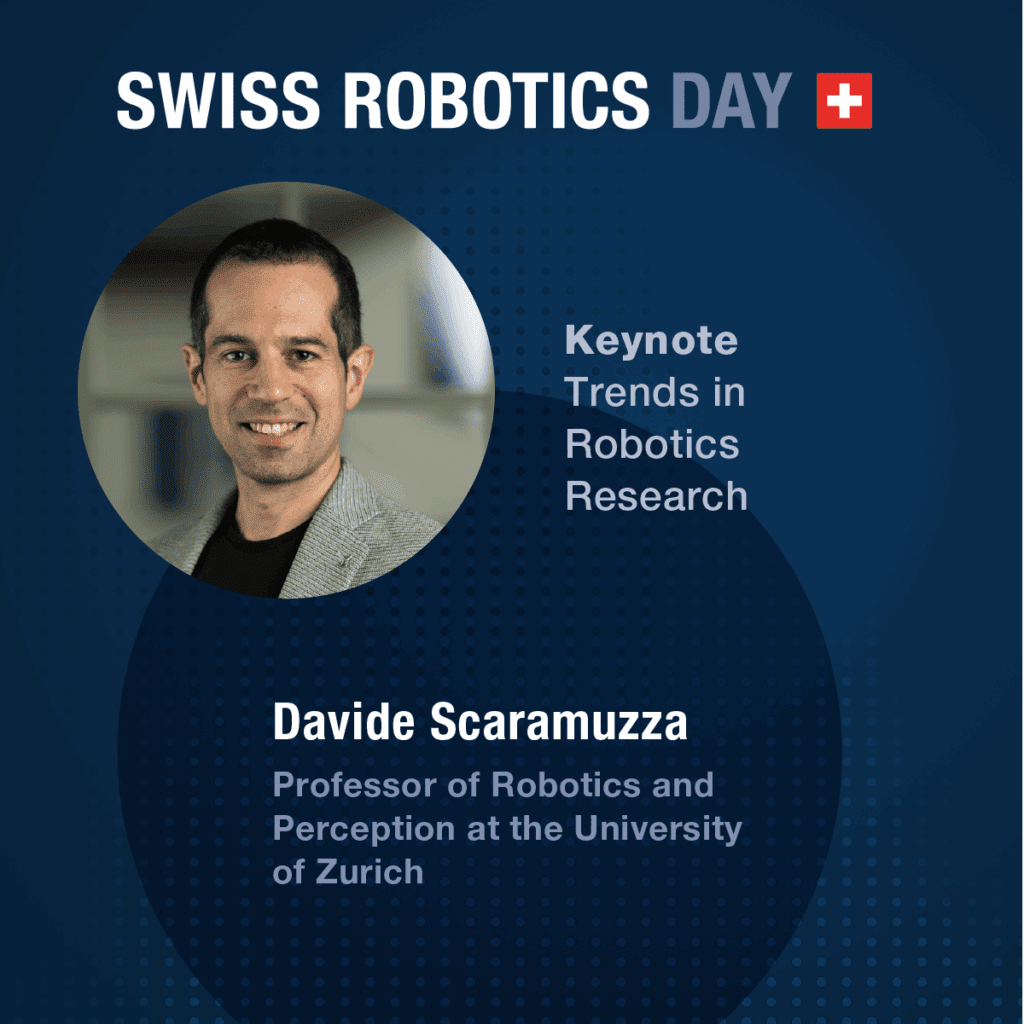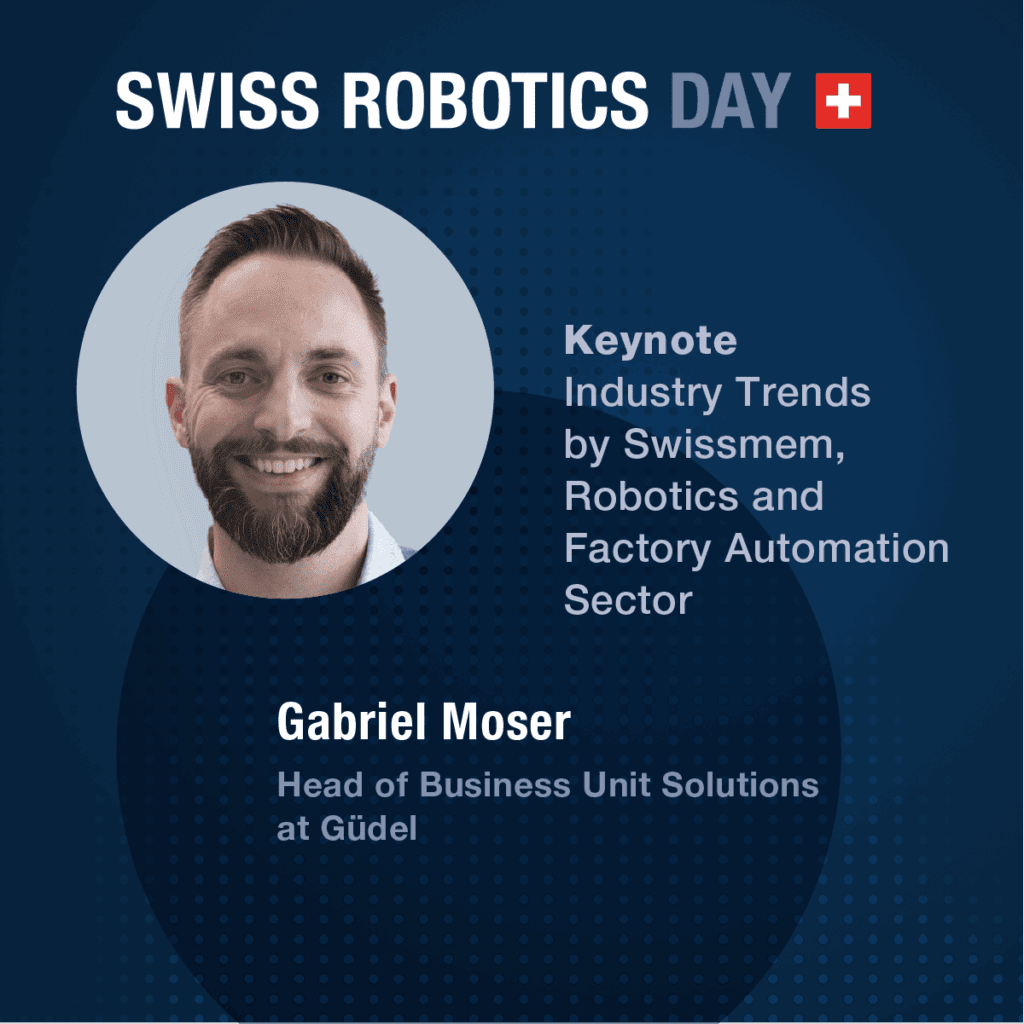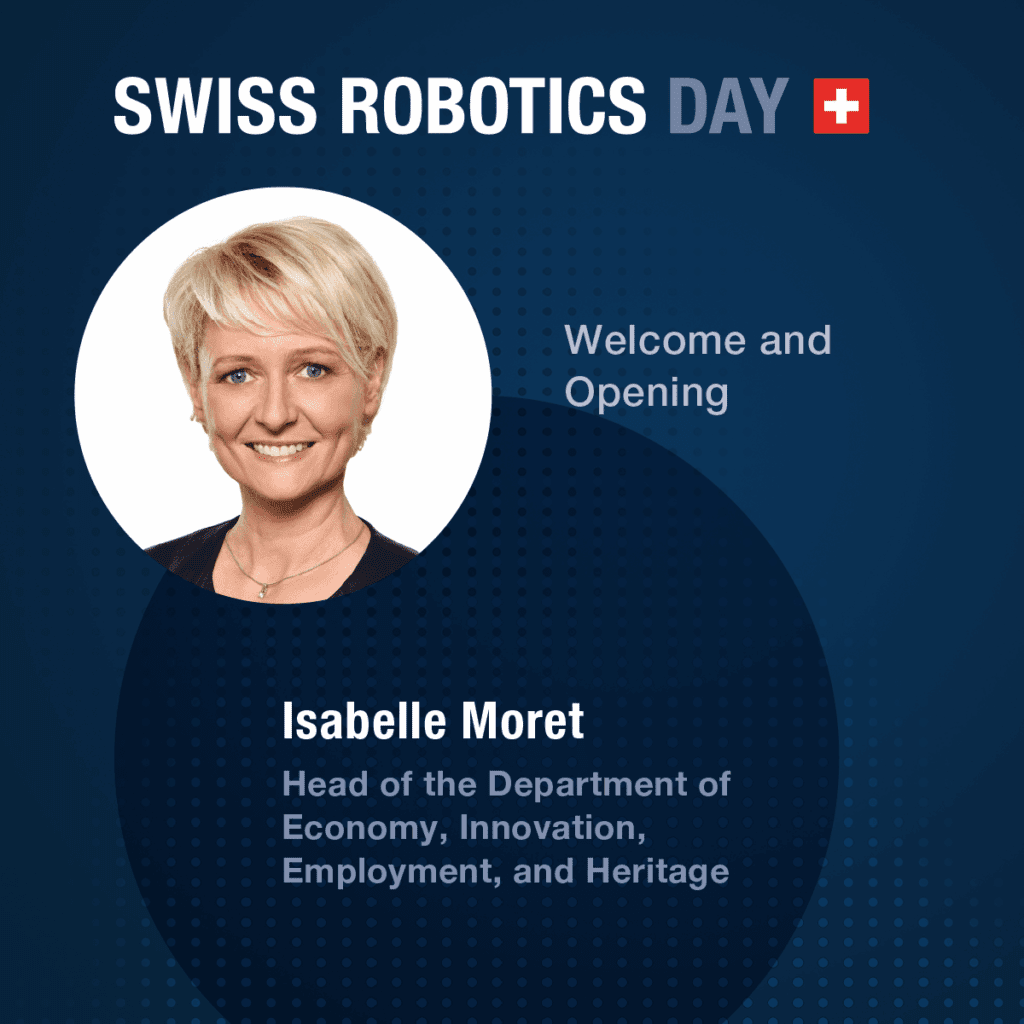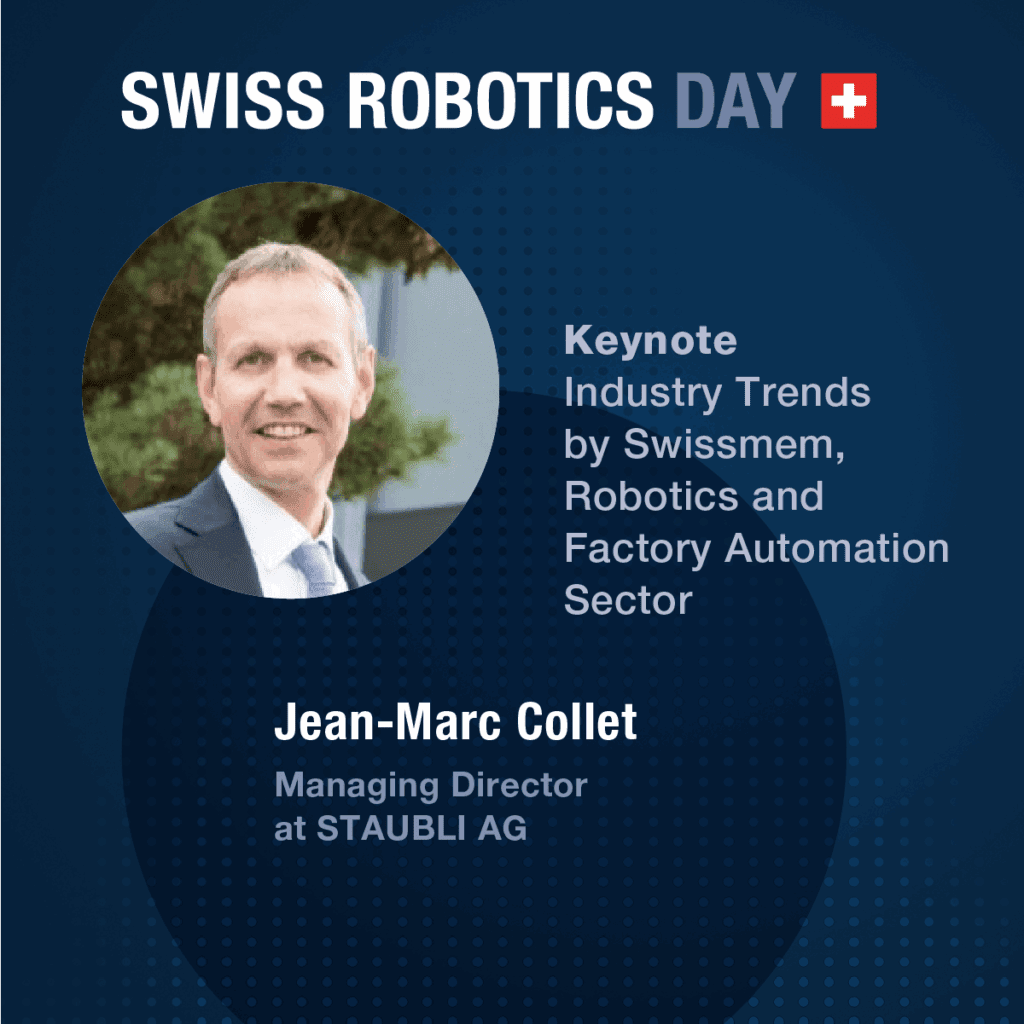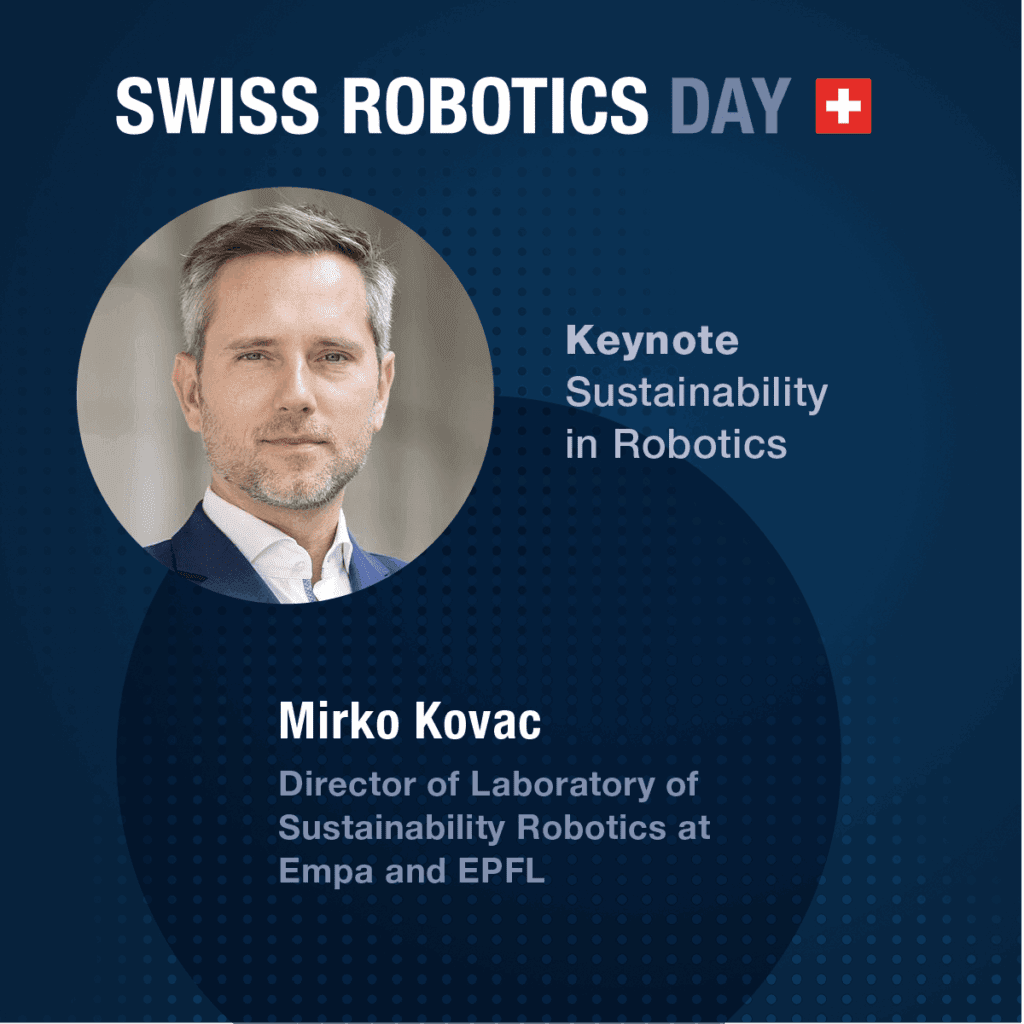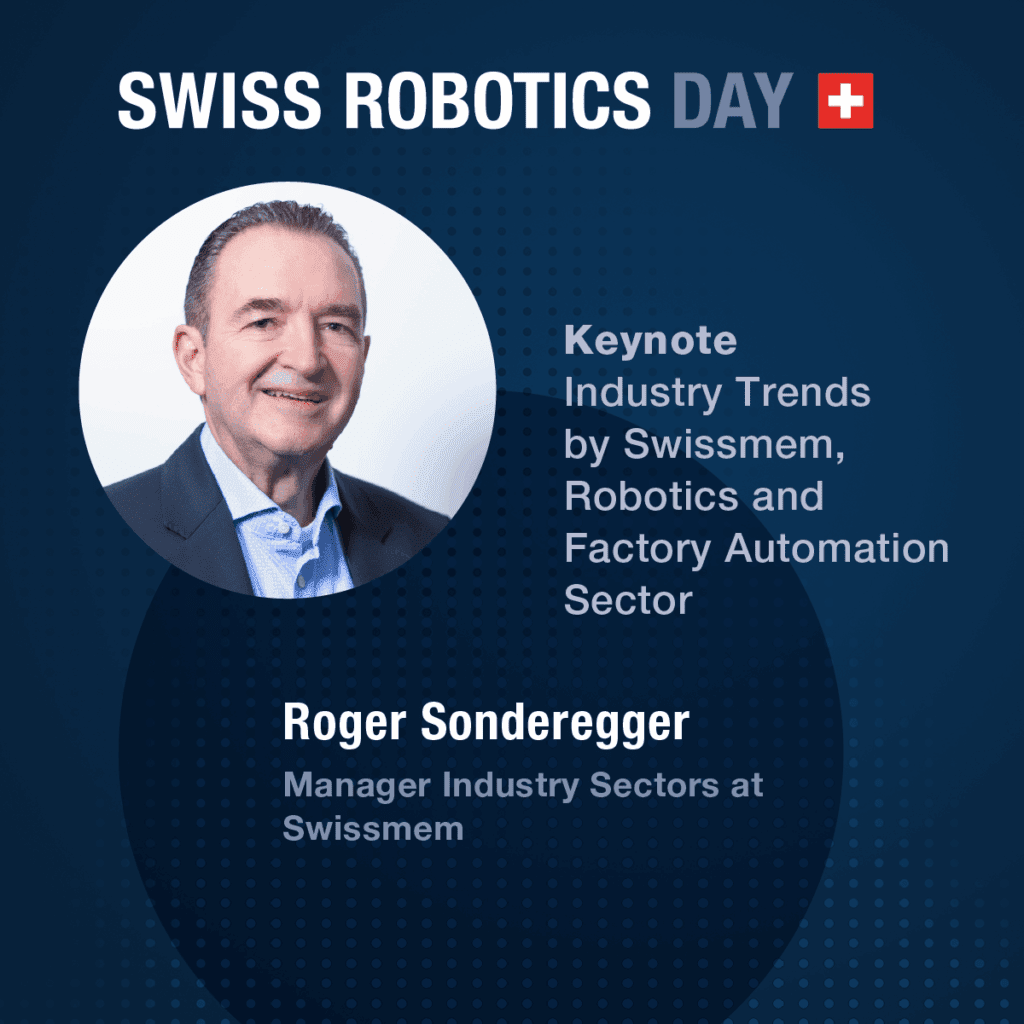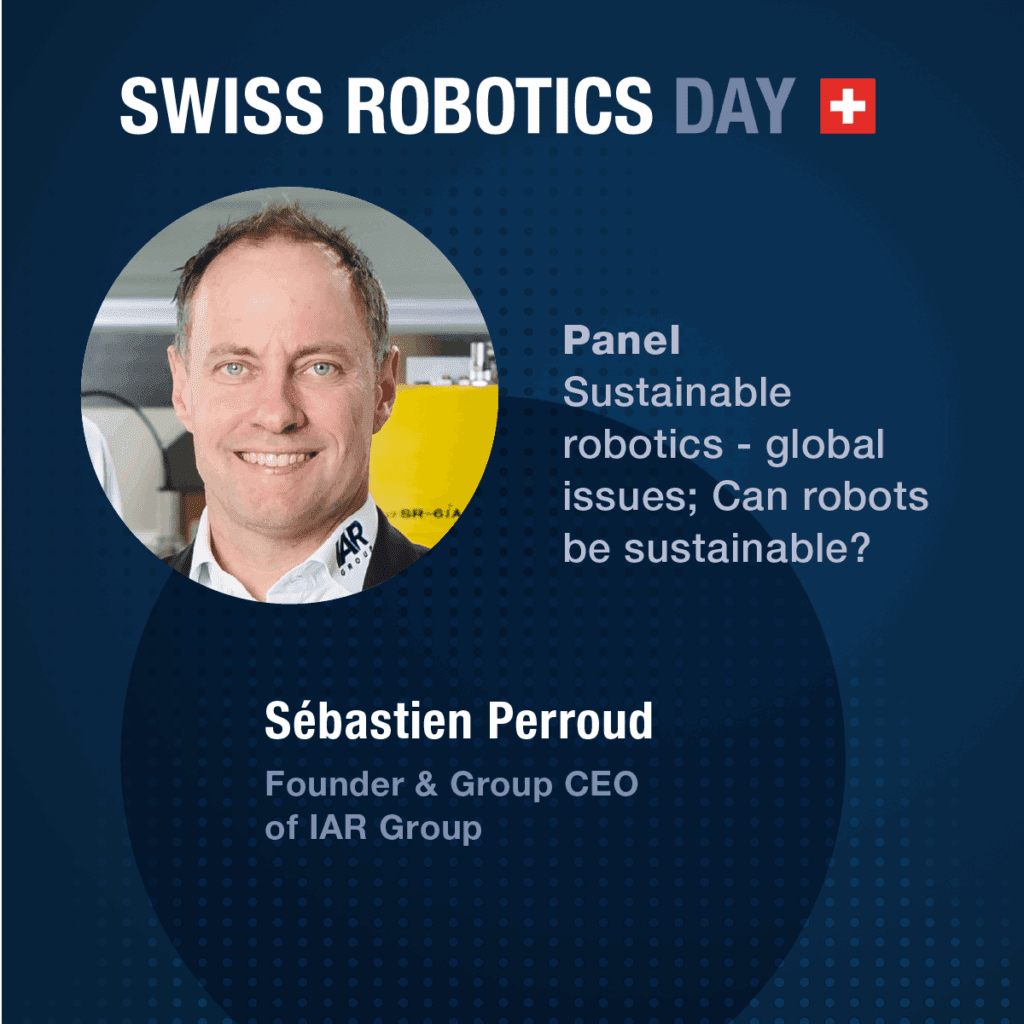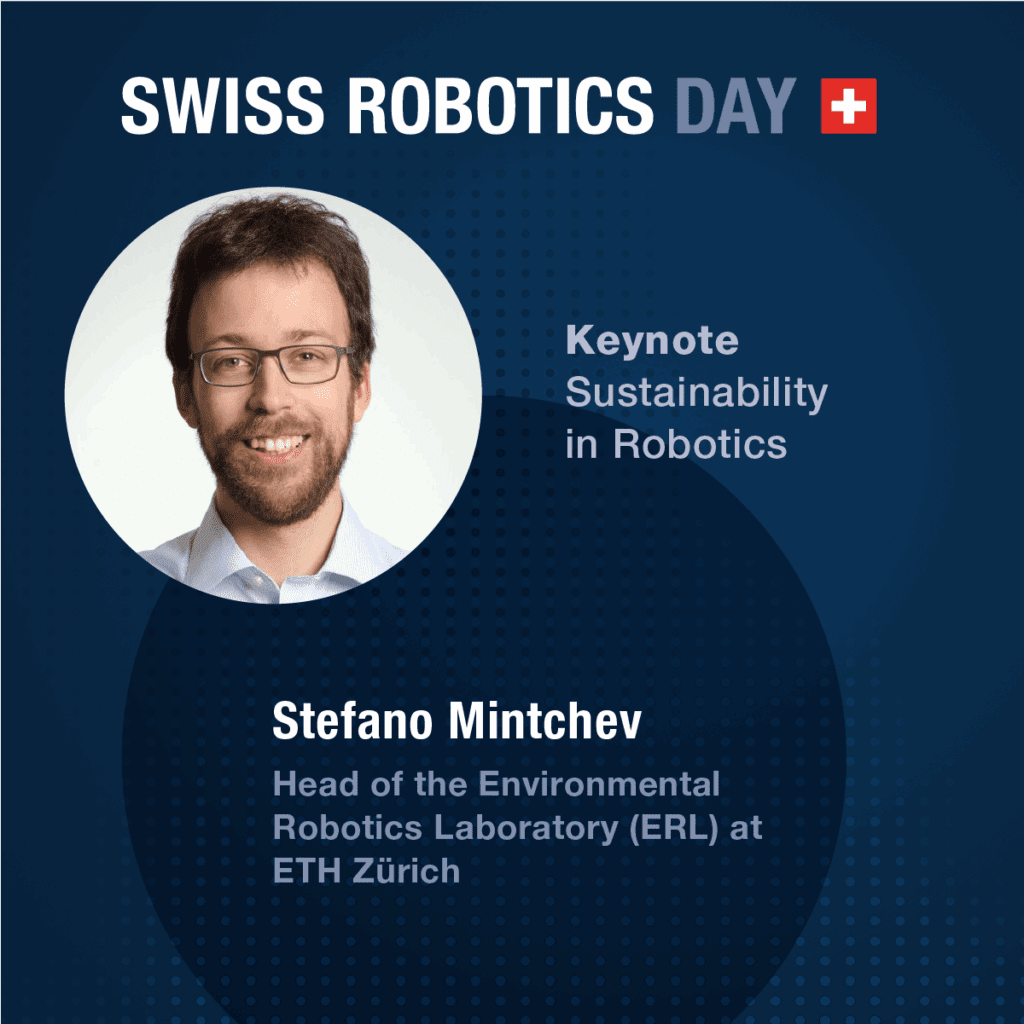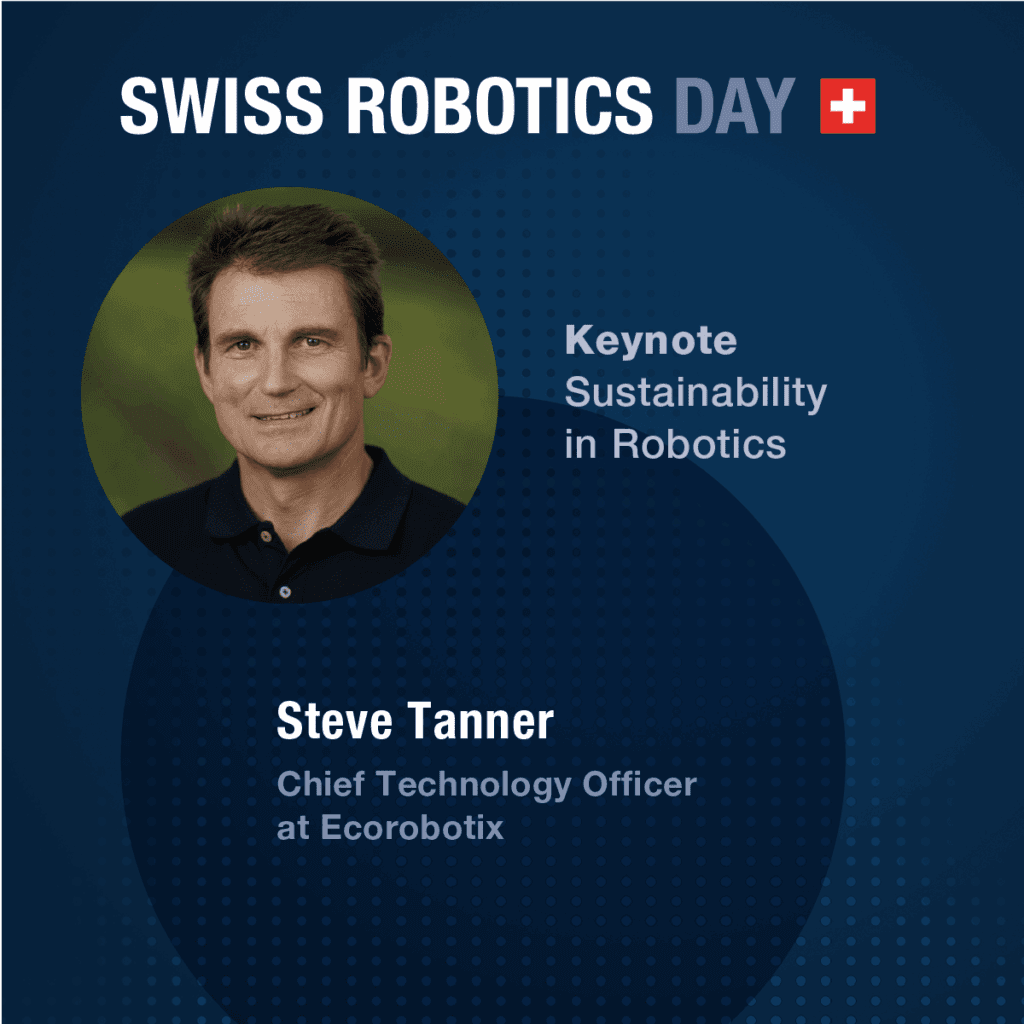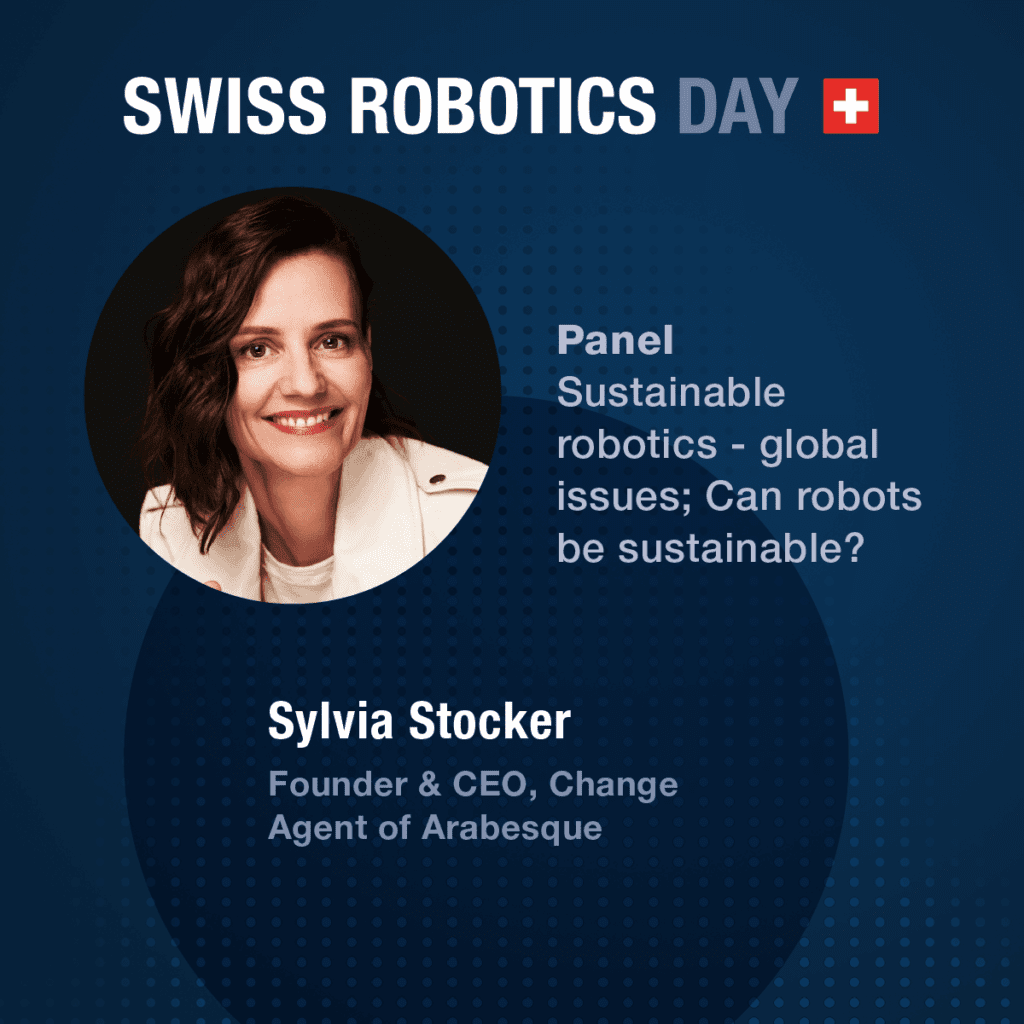Speakers
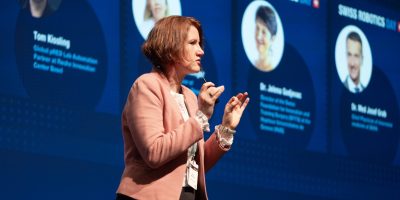
Swiss Robotics Day 2025 brings together leading scientists, engineers, and innovators who are redefining how robots are designed, built, and used. From sustainable construction and precision manufacturing to agile drones and smart agriculture, their stories reveal the creativity and collaboration that drive Switzerland’s robotics ecosystem.
Alberto Bombelli is a Senior Simulation Engineer at SBB CFF FFS, where he focuses on agent-based simulation and data-driven solutions for optimizing railway operations. With a background in engineering management and production systems, he brings experience across process optimization, predictive maintenance, and industrial sustainability from roles in the energy, biomedical, and logistics sectors.
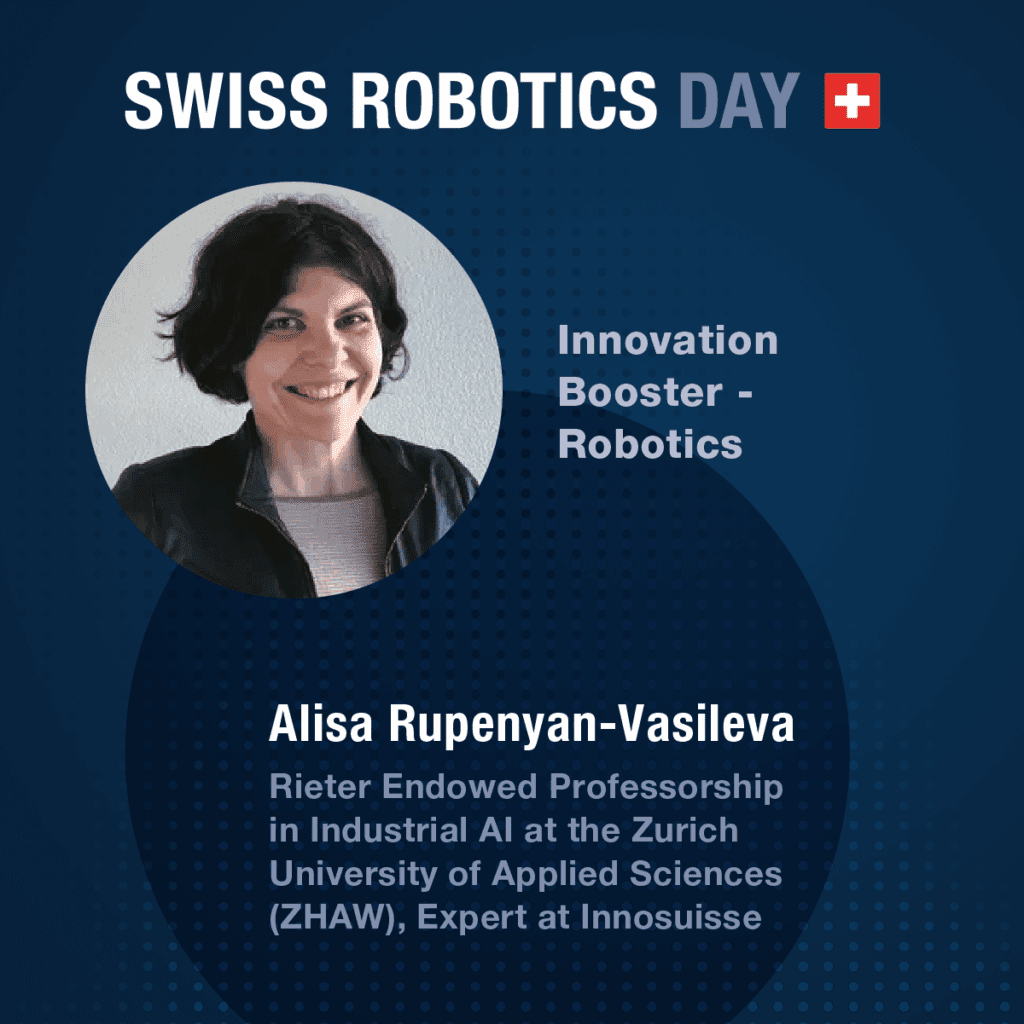
Alisa Rupenyan
Prof. Dr. Alisa Rupenyan-Vasileva holds the Rieter Endowed Professorship in Industrial AI at the Zurich University of Applied Sciences (ZHAW). Based at the ZHAW School of Engineering, her research focuses on control amd AI-based methods for automation and process optimization of robotic and advanced manufacturing systems. Before joining ZHAW, she held senior scientific and leadership roles at ETH Zurich and other research institutions, and holds a PhD in Physics from the Vrije Universiteit Amsterdam. She leads multiple industrial AI and control-systems projects and is a recognised expert in machine learning for complex manufacturing challenges.
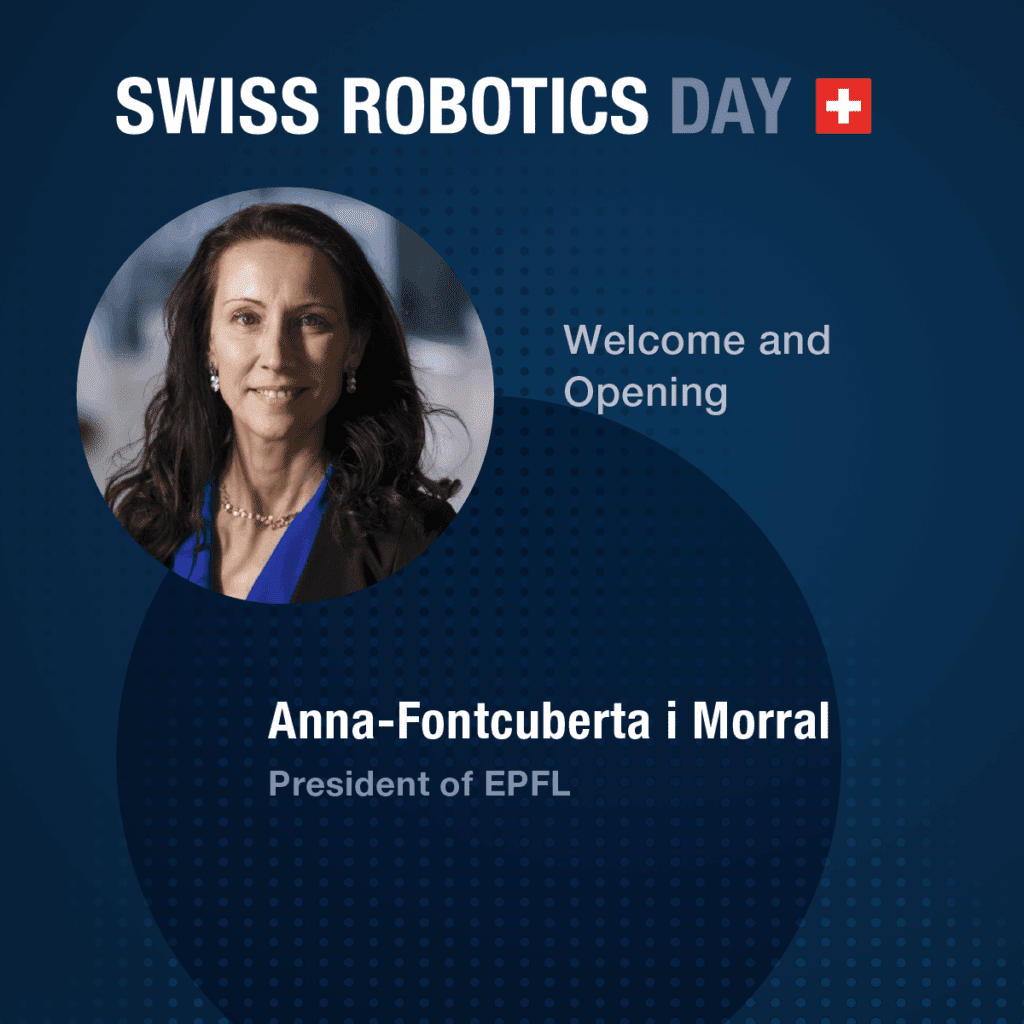
Anna Fontcuberta i Morral
Prof. Anna Fontcuberta i Morral is the President of EPFL and a full professor of materials science and engineering. Appointed by the Swiss Federal Council in January 2025, she leads the School after a distinguished international career spanning Caltech, CNRS, and TU Munich. Since joining EPFL in 2008, she has directed the Laboratory of Semiconductor Materials, advancing research on nanowires and sustainable semiconductors. A strong advocate for women in science and cross-disciplinary collaboration, she has served in key national and international roles, including chairing the SNSF committee on international cooperation and representing Switzerland in quantum technology discussions at the World Economic Forum and CERN.

Anna Valente
Prof. Anna Valente is Full Professor of Industrial Robotics. She got a Ph.D. in Manufacturing Technologies and Production Systems at Politecnico di Milano and a Post-doctorate in interoperability for adaptive factories from UBath, UK. Since 2006, she has been working in cooperation with big research institutions and industrial stakeholders operating in the manufacturing value chain. She is currently Head of the Laboratory for Automation, Robots and Machines with SUPSI-DTI-ISTePS where the core research deals with the design, engineering and prototyping of robotic solutions. She is the author of two books, several patents and more than 120 papers on system (re)configuration, robotics and control platforms. Since 2012 she has been coordinating several European and National Projects. She is Fellow member of CIRP – The International Academy for Production Engineering. She leads the SATW Advanced Manufacturing Platform. She was member of the Swiss Science Council SSC (elected in 2020), consultative body to the Federal Council, operating with Federal Department of Economic Affairs, Education and Research on the matter of science and educational policies and governance. In 2019, she has been awarded by the European Commission with the Woman-Led Innovation and the Grand Prix for Innovation. In 2021, she has been awarded with the Swiss DINNO Award by the President of the Swiss Confederation, Guy Parmelin.
She currently serves the Innosuisse and Swissphotonics Advisory Boards.
Prof. Aude Billard is head of the LASA laboratory at the School of Engineering at the Swiss Institute of Technology Lausanne (EPFL).
A.B. holds a B.Sc and M.Sc. in Physics from EPFL (1995) and a Ph.D. in Artificial Intelligence (1998) from the University of Edinburgh. A.B. was the recipient of the Intel Corporation Teaching award, the Swiss National Science Foundation career award, the Outstanding Young Person in Science and Innovation from the Swiss Chamber of Commerce, the IEEE-RAS Best Reviewer Award and IEEE-RAS Distinguished Service Award. A. B.’s research spans the fields of machine learning and robotics with a particular emphasis on learning from sparse data and performing fast and robust retrieval. This work finds application to robotics, human-robot / human-computer interaction and computational neuroscience. This research received best paper awards from IEEE T-RO, RSS, ICRA, IROS, Humanoids and ROMAN and was featured in premier venues (BBC, IEEE Spectrum, Wired).
Aude Billard leads the Swiss National Thematic Network Innovation Booster on Robotics, a half a million fund in support of industrial-academic partnerships, and is the current president-elect of the IEEE Robotics and Automation Society.
Cedric Lienhard is a Senior Software Engineer at Mikron Automation, specializing in machine learning, computer vision, and synthetic data generation.
Holding a Master’s in Artificial Intelligence and with several years of experience delivering production-grade vision systems in global B2B environments, he focuses on developing technologies to build robust, real-time solutions for high-volume industrial assembly machines. He actively explores advanced approaches such as synthetic data generation and efficient inference on constrained hardware to push the limits of what can be achieved in production environments.
Davide Scaramuzza is a Professor of Robotics and Perception at the University of Zurich. He did his Ph.D. at ETH Zurich, a postdoc at the University of Pennsylvania, and was a visiting professor at Stanford University and NASA Jet Propulsion Laboratory. His research focuses on autonomous, agile navigation of mobile robots using standard and event-based cameras. He has made fundamental contributions to visual-inertial state estimation, autonomous vision-based agile navigation of micro flying robots, and low-latency perception with event cameras, which were transferred to many products, from drones to automobiles, cameras, AR/VR headsets, and mobile devices. In 2022, his team demonstrated that an AI-powered drone could outperform the world champions of drone racing. He received several awards, including a recent IEEE Technical Field Award, the elevation to IEEE Fellow, the IEEE Robotics and Automation Society Early Career Award, a European Research Council Consolidator Grant, a Google Research Award, and many paper awards. In 2015, he co-founded Zurich-Eye, today Meta Zurich, which developed the head-tracking software of the Meta Quest. In 2020, he co-founded SUIND, which builds autonomous drones for precision agriculture. Many aspects of his research have been featured in the media, such as The New York Times, The Guardian, The Economist, and Forbes.
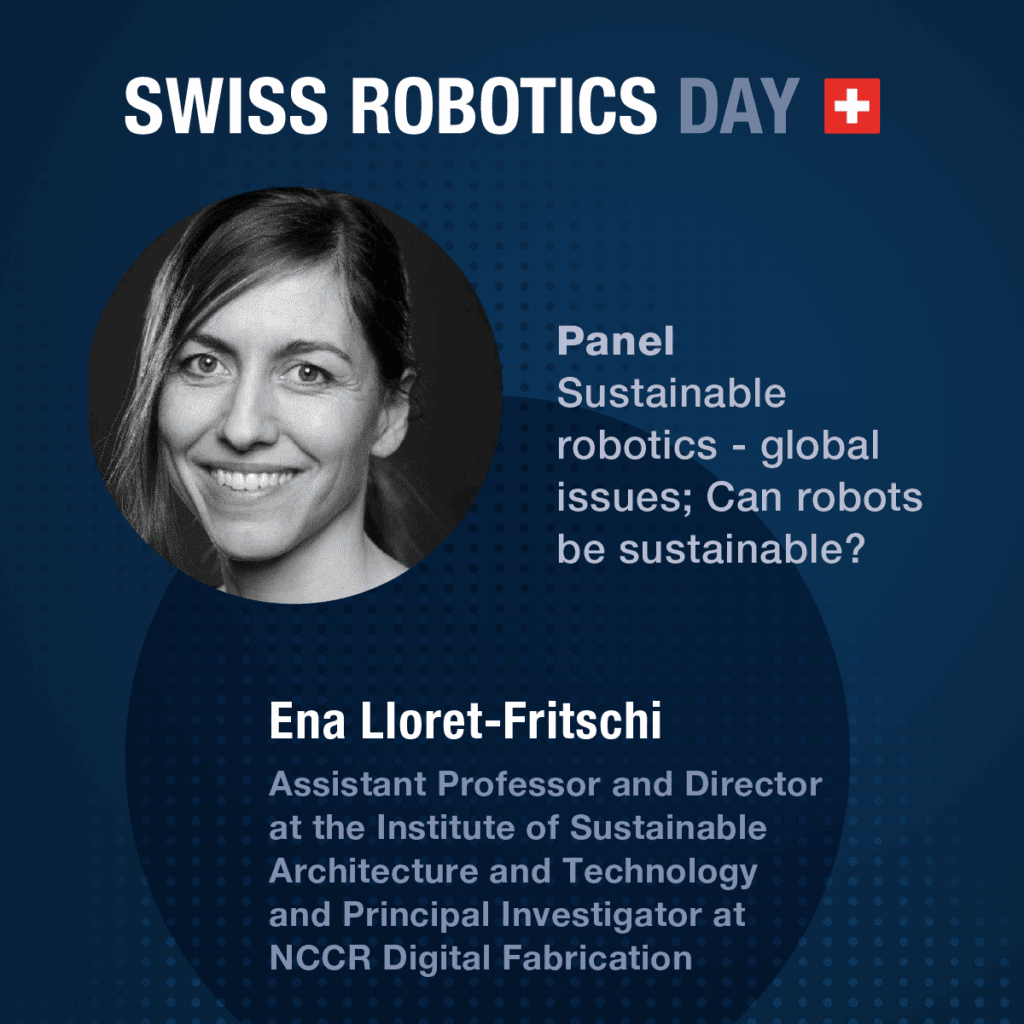
Ena Lloret-Fritschi
Dr. Ena Lloret-Fritschi is an architect and Assistant Professor at the Accademia di Architettura Mendrisio (AAM-USI), where she directs the Institute of Sustainable Architecture and Technology (IAST) and leads the Fabrication- & Material-Aware Architecture (FMAA) group. A Principal Investigator at the NCCR Digital Fabrication, she explores how digital and robotic technologies can enable sustainable and resource-efficient construction, particularly with earth and concrete. Co-founder of Foldcast, a research and design practice focused on robotic concrete casting, she previously worked with OMA, Dietrich Untertrifaller and Allmann Sattler Wappner, and held a postdoctoral position at ETH Zurich bridging architecture, materials science, and digital fabrication.
Gabriel Moser is Head of the Business Unit Solutions at Güdel AG, where he drives innovation in industrial automation and advanced system solutions. With over 13 years of experience in automation and global B2B markets, he focuses on transforming complex challenges into scalable, high-performance solutions. His expertise spans robotics integration, automation strategy, and cross-functional leadership, delivering measurable impact for leading industrial and automotive clients worldwide.
Isabelle Moret is Head of the Department of Economy, Innovation, Employment and Heritage of the Canton of Vaud. Elected to the Council of State in April 2022, she took office on July 1 of the same year. A lawyer by training, she served as a National Councillor from 2006 until her election to the cantonal government and was Vice President of the Swiss Liberal-Radical Party (2008–2016). In 2019–2020, she presided over the National Council, leading the chamber during the height of the COVID-19 pandemic.
With three decades of experience in industrial robotics and automation, Jean-Marc Collet serves as Managing Director for Switzerland at Stäubli.
His passion for the Human-Machine relationship and his constant commitment to the deployment of robotic ecosystems have enabled him to build a comprehensive expertise.
Among other achievements, Jean-Marc has also been active as Global Head of Medical Robotics.
At the Swiss Robotics Days, he will highlight how robots are transforming clinical applications, thereby creating new value for medical teams and patients.
Prof. Mirko Kovac is a director of Laboratory of Sustainability Robotics at the Swiss Federal Laboratories for Materials Science and Technology (Empa) in Zürich and the École Polytechnique Fédérale de Lausanne (EPFL). Before his appointment at EPFL he was full Professor at Imperial College London and still holds a honoary Professor position at Imperial. His research group focusses on the development of novel mobile robots for distributed sensing and autonomous manufacturing in complex natural environments. Prof. Kovac’s particular specialisation is in robot design, hardware development and multi-modal sensor mobility.
He was post-doctoral researcher at Harvard University and obtained his PhD at the Swiss Federal Institute of Technology in Lausanne (EPFL). He received his undergraduate degree in Mechanical Engineering from the Swiss Federal Institute of Technology in Zurich (ETHZ) in 2005.
Since 2006, he has presented his work in more than 100 peer reviewed publications in leading conferences and journals, has won several best paper awards and has delivered over 100 keynote and invited lectures. He also regularly acts as advisor to government, investment funds and industry on robotics opportunities.
Roger Sonderegger is Manager of Industry Sectors at Swissmem, the Swiss association representing the mechanical and electrical engineering industries. Since 2019, he has led key sectors including Robotics & Factory Automation, Process Technology, and New Energy Systems, fostering collaboration and innovation across the Swiss tech landscape. With over 25 years of international experience in sales, business development, and strategic management at companies such as Bosch Packaging Technology, Gericke Powder Handling, Shell International, and Olympus Optical, Roger brings deep expertise in industrial automation and global market development. He holds a master’s degree in Business Economics from the University of Zurich and is fluent in German, English, and Italian.
Sebastien Perroud is the Founder and Group CEO of IAR Group, a Swiss-based international company specializing in advanced automation and robotics solutions. Under his leadership, IAR Group designs and engineers custom assembly systems and cutting-edge robotic technologies to enhance manufacturing efficiency and competitiveness. With strategic business units across North America, Iberia, and Central Europe, the Group fosters collaboration and innovation to drive the global automation transformation.
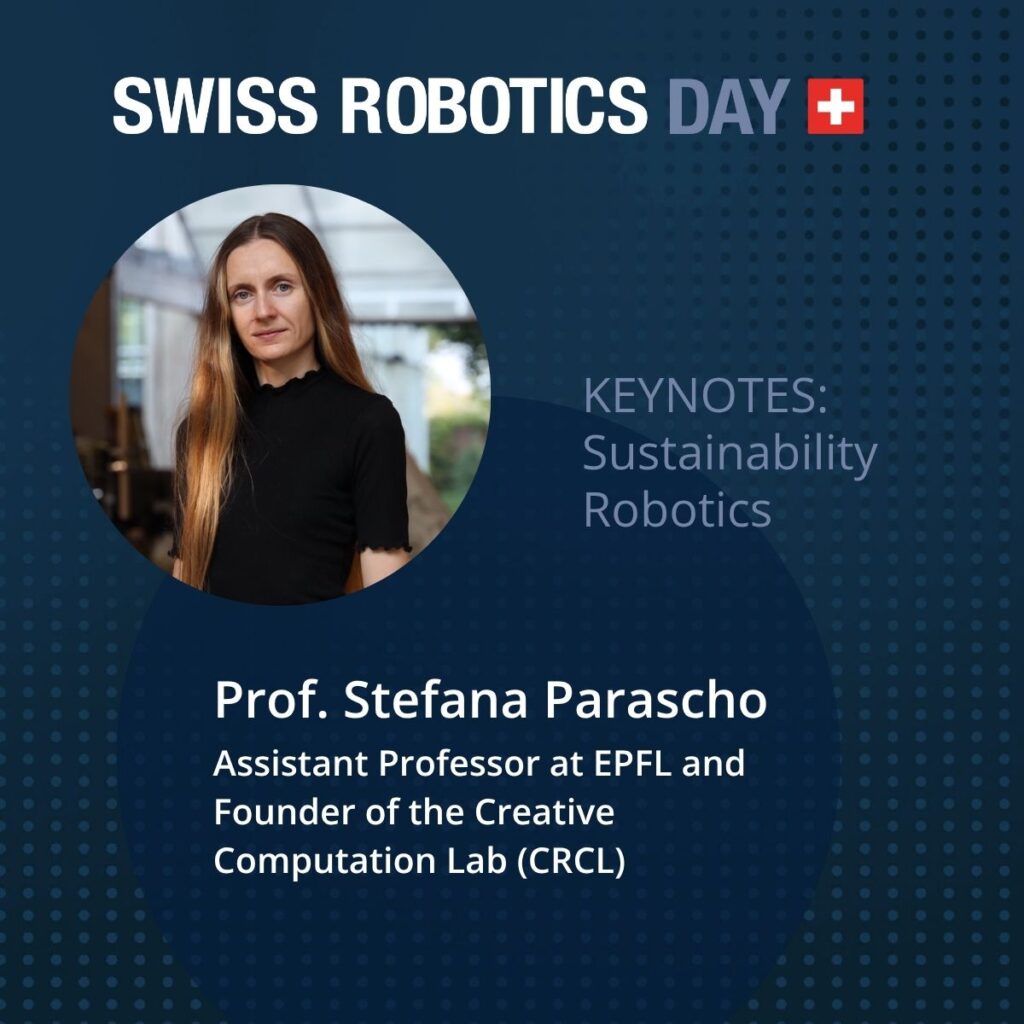
Stefana Parascho
Prof. Stefana Parascho is a researcher, architect, and educator whose work lies at the intersection of architecture, robotics and computational design. She is currently an Assistant Professor at EPFL where she founded the Lab for Creative Computation (CRCL).
Through her research, she has explored multi-agent fabrication methods, and their potential for architecture. Her current work focuses on human-robot collaborative processes and the relationship between robotic construction and the built environment. The work proposes methods in which humans and machines interact, communicate and jointly design and build full-scale structures, while addressing the current prevailing challenges of the construction field. Applications include scaffold-free construction of spanning structures, reconfiguration of existing buildings and autonomous robotic construction with found materials.
Her goal is to strengthen the interdisciplinary nature of the field by increasing accessibility of digital tools and connecting robotics research with societal aspects.
Before joining EPFL, Stefana was an Assistant Professor at Princeton University, where she led the CREATE Lab Princeton. She completed her doctorate in 2019 at ETH Zurich, Gramazio Kohler Research and received her Diploma in Architectural Engineering from the University of Stuttgart.
Stefano Mintchev is an Assistant Professor of Environmental Robotics at the Swiss Federal Institute of Technology in Zurich (ETH Zurich), Switzerland. He earned his Ph.D. in Bioinspired Robotics from Scuola Superiore Sant’Anna in Italy in 2014. His postdoctoral research at the Swiss Federal Institute of Technology in Lausanne (EPFL) focused on bioinspired design principles for versatile aerial robots. In 2018, he co-founded Foldaway Haptics and served as its CTO until 2020, when he joined ETH Zurich. At ETH Zurich, Stefano leads a research group working at the intersection of robotics and environmental science, developing robust and scalable bioinspired robotic technologies for monitoring and promoting the sustainable use of natural resources.
Steve Tanner obtained a Master in micro-engineering from EPFL (Ecole Polytechnique Fédérale de Lausanne) in 1996, and a Ph. D. in microelectronics on CMOS digital image sensors from the University of Neuchâtel in 2000. From 2001 to 2013, he worked as researcher and team leader at UniNE and EPFL on a wide range of R&D projects in mixed-signal integrated circuit design for many applications and industries. He authored or co-authored more than 30 scientific publications. He also worked in environmental protection in Ecuador from 2003 to 2005. In 2011, he co-founded Ecorobotix, a company developing, producing and selling farming machines for sustainable agriculture using AI and robotics technology. He is currently the CTO and leads the research and product development.
Sylvia Stocker is the Founder and CEO of Arabesque, bringing a unique perspective that bridges robotics, business, communications, and the performing arts. With professional experience in New York, Paris, and London, she combines creative and strategic thinking to drive human-centred innovation. Sylvia holds an altMBA from Seth Godin’s program in New York, a BBA from CEIBS, and studied performing arts at the Alvin Ailey School as well as private banking business management.

